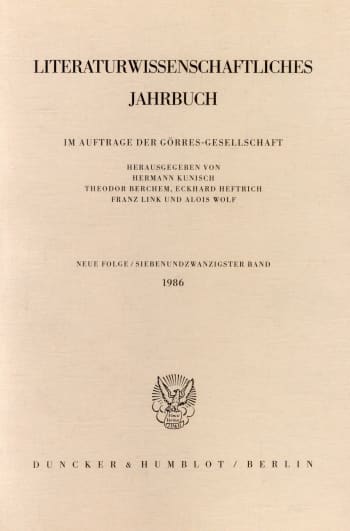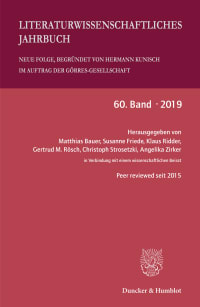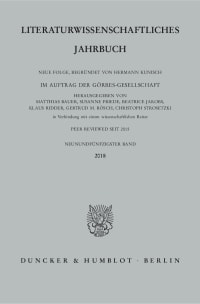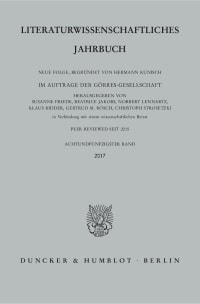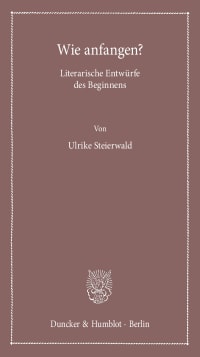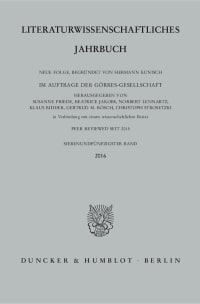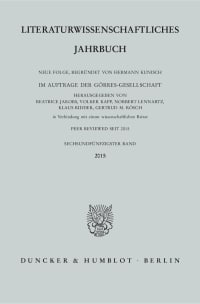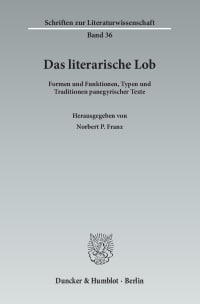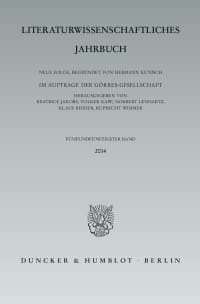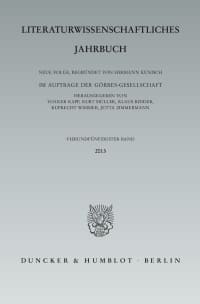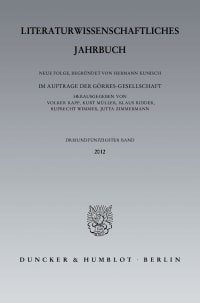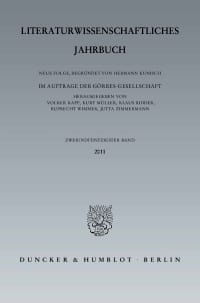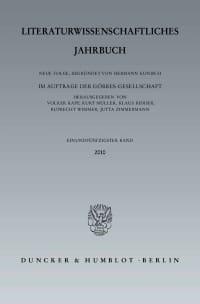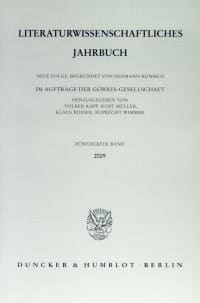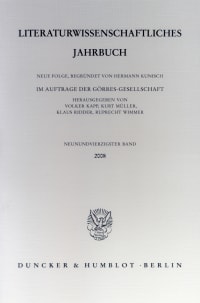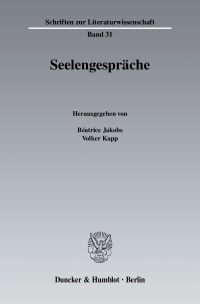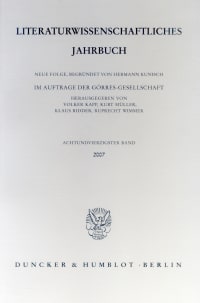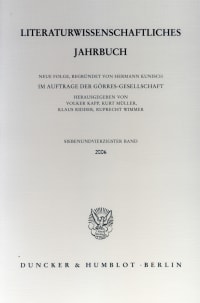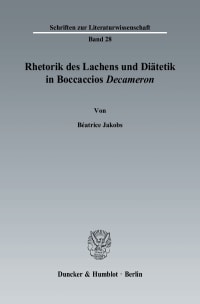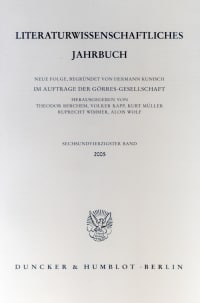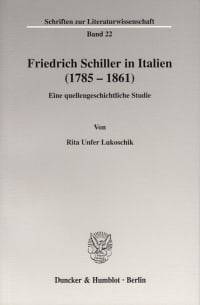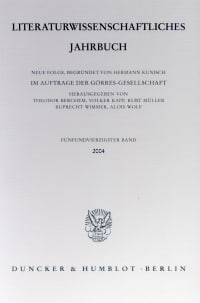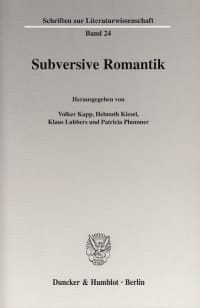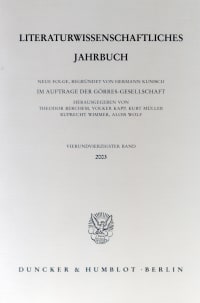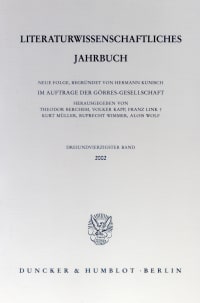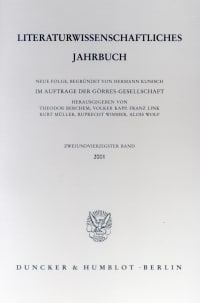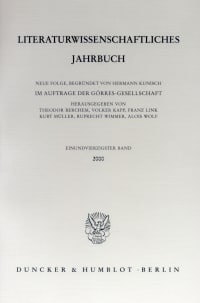27. Band (1986)
Description
The Literaturwissenschaftliches Jahrbuch (Yearbook of Literary Studies) was founded in 1926 by Günther Müller with the aim to publish both research and literary texts. The Jahrbuch was banned by the Nazis in 1939 and re-founded by the German scholar Hermann Kunisch in 1960; the new series has now grown to 27 volumes. The trans-disciplinary journal publishes articles on German, English and American literature, as well as literature in the Romance languages. Articles may be written in German or the languages of the respective fields. Each volume also comprises a substantial review section. Early career scholars are encouraged to submit their manuscripts.
The Literaturwissenschaftliche Jahrbuch is not restricted to any specific method or school. It focuses on texts and developments from the Middle Ages to the present. With a view to exploring the multilingual and transcultural dimension of the literatures involved, emphasis will be given to comparative approaches.
Overview
Inhalt: W. Pötscher, Das Selbstverständnis des Dichters in der homerischen Poesie - K. Smits, Die 'Stimmen' des schweigenden Königs: Ein Erzählmotiv im 'Beowulf', im 'Nibelungenlied' und im 'Parzival' - G. Steer, Der Prozeß Meister Eckharts und die Folgen - W. G. Müller, Liturgie und Lyrik: John Donnes "The Litanie" - R. Lessenich, The Concept of 'felix culpa' in the Novels of Nathaniel Hawthorne - R. Bauer, Hugo von Hofmannsthal und die venezianische Komödientradition - M. Winkgens, Zivilisationskritik und Lebensaffirmation bei D. H. Lawrence: Der paradigmatische Bildungsweg von Ursula Brangwen in 'The Rainbow' - E. Heftrich, Künstlerfreiheit und Gewissensnot: Das Beispiel Thomas Mann - W. Frizen, "Dieses armselige Wort": Zur Erzählkunst von Thomas Manns 'Felix Krull' - C. Strosetzki, "Magischer Realismus" oder Archäologie des Mythos: Zu Asturias' Mythenverständnis in den 'Leyendas de Guatemala' und in theoretischen Schriften - F. Cercignani, Zwischen irdischem Nichts und machtlosem Himmel. Karl Krolows 'Gedichte' 1948: Enttäuschung und Verwirrung - A. Pieper, Der philosophische Begriff der Utopie und die klassischen Utopien - J. Jurt, Das Bild der Stadt in den utopischen Entwürfen von Filarete bis L.-S. Mercier - H. Hudde, Fernández de Lizardi: Literarische Utopie an der Schwelle der Unabhängigkeit Mexikos (mit Bemerkungen zu modernen lateinamerikanischen Utopien) - H.-J. Müllenbrock, Die Entstehung der Antiutopie im spätviktorianischen England und ihre genetischen Voraussetzungen - H. Schulte Herbrüggen, Formen und Entwicklungslinien der Utopie bei Aldous Huxley
